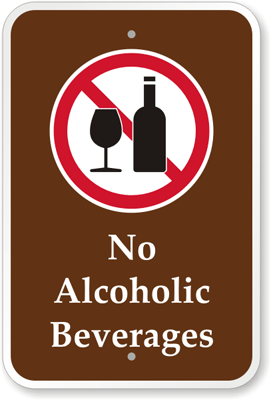Friday Five – Sign Rage
Signs like these are compliant with OSHA regulations, some of which were violated by New Jersey building company DD Stucco and Renovation. (via MySafetySign.com)
June 15, 2012 — OSHA fines Clifton builder for safety violations The US Department of Labor’s Occupation Safety and Health Administration, more commonly known as OSHA, recently fined a New Jersey construction company over $100,000 for exposing workers to fall hazards at a worksite. Two of the six violations at DD Stucco and Renovation LLC were deemed willful violations, meaning that they showed . These two violations accounted for around $93,000 of the $108,240 of fines. The other four violations were serious violations, meaning that they carried a strong risk of death or serious harm, and accounted for the rest of the fines. According to OSHA, in 2007, falls caused at least 442 construction worker fatalities.

Haniyyah Barnes and Honey Bey, the dog she killed over a driveway.
Parking dispute prompts Newark woman to throw dog into oncoming traffic, cops say Many fights are confined to parking lots, a number of which have been immortalized on the Internet, but a Newark woman has allegedly taken street violence to a unique, new level. Haniyyah Barnes, 25, was recently indicted on charges of animal cruelty, burglary, criminal mischief, and theft after allegedly throwing a neighbor’s Shih Tzu into oncoming traffic nearly a year ago. Authorities say that the woman, infuriated by a parked car blocking her driveway, kicked down her neighbor’s front door. After threatening and assaulting the neighbor, police say that the woman took the dog and threw it into the street, killing it instantly. If convicted, she faces up to ten years in prison.

Alert citizens to state laws regarding alcohol consumption with proper signage. (via CampgroundSigns.com)
Debate over alcohol sales in western Kentucky leads to thefts, vandalism, harsh words A community debate in Benton, Kentucky, takes its fight to signs. Community disputes like this one often erupt in chaos, especially when there are signs involved, but this time both sides are guilty of vandalizing the opposition’s advertising and signage. The debate is about legalizing alcohol, but it has exploded to where local police are now actively looking for anyone tampering with or stealing signs, a possible felony in itself.

The SmartSign staff makes its own stop signs, at MyCustomSign.com.
Youth draws police lecture for placing fake stop sign in road. Fake signs continue with a stop sign in Medina, Ohio. After police arrived at the thoroughfare, the boy confessed to his wrongdoing, though the sign had disappeared. One particularly incensed motorist heeded the sign’s advice, but then proceeded to put the sign in his car and drive away, cursing at the boy as he did so. No one was hurt by the stunt, probably because the road is only three blocks long and located in a residential area of the Ohio town.

Signs attached to stationary posts are acceptable, but the yellow outdoor parking signs will be prohibited according to the sign ban.
City seeks sign ban ruling Muskogee, OK, continues a six-year fight on the issue of portable signs. The government has prohibited any signs that are not permanently fixed, following a tourism expert and U.S. Sign Council member’s comments that portable signs detracted from the county’s appearance. Angered by the original ban, two sign company owners challenged the ban, and a second ordinance delayed enforcement. Unfortunately, the delay ended in 2011 and the argument has continued, with both sides seeking a final judgment on the issue.
While some business owners have decided to adhere to the guidelines outlined in the ban, others are outraged by the premise. Commenters cite both corporate-owned billboards and campaign posters as far more offensive blights on the landscape. The municipality has responded by saying the delayed enforcement was sufficient to address complaints, and that it will push forward with the ban.
– K. Howitt, T. Caruso, and N. Gilliat




